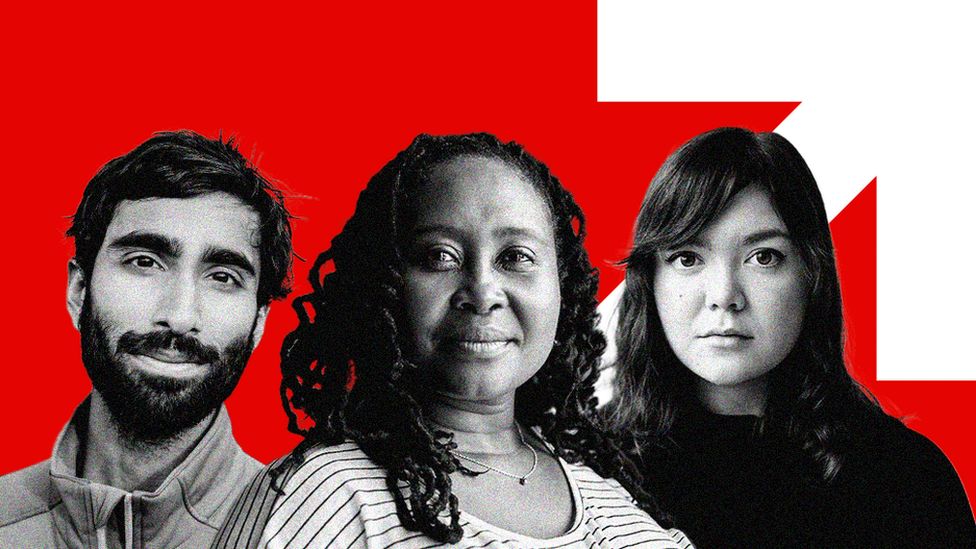
The Conservatives and Labour have been accused of a “conspiracy of silence” over the scale of spending cuts or tax rises by an influential think tank.
Tough decisions would need to be made following the next election, the Institute for Fiscal Studies said.
Chancellor Jeremy Hunt told the BBC it would be “challenging” to live within current spending restrictions.
Labour says it will have to make future savings to public spending to fund some of its policies if it wins power.
The state of the economy is under intense focus in the run-up to a general election that must be called before next January.
In Wednesday’s Budget, the chancellor cut National Insurance by 2p and increased child benefit salary thresholds, while introducing a new vaping levy and abolishing non-dom tax status.
Scrapping non-dom status had been a Labour Party policy and leader Sir Keir Starmer described the decision by the Conservatives to use it in their Budget as “humiliating”.
Meanwhile, Prime Minister Rishi Sunak refused to be drawn on the date of the general election.
He told BBC Radio Leeds “nothing has changed” since when he said his working assumption was for the public to go to the polls in the second half of this year.
“I was very clear about this at the beginning of the year about my working assumption for the election being in the second half of the year – nothing has changed since then,” he said.
Mr Sunak also said the focus on the election date was coming from the Labour party to “distract from the fact that actually they don’t want talk about the substance”.
‘Eye-wateringly tough’
The IFS said the tax cuts announced in the Budget would not make up for the impact of tax increases and rising prices.
It said households would be worse off at the election than they were at the start of this parliament.
Under the current government’s self-imposed fiscal rules, debt must be falling as a proportion of the size of the economy in five years’ time.
IFS director Paul Johnson said that debt as a proportion of the size of the economy was at its highest level in 70 years and “is showing no signs of falling”.
He added that the next parliament could “well prove to be the most difficult of any in 80 years for a chancellor wanting to bring debt down”.
Mr Johnson said both Conservatives and Labour were joining in “a conspiracy of silence in not acknowledging the scale of the choices and trade-offs that will face us after the election” which included “eye-wateringly tough choices” on public service spending to stabilise debt as a fraction of national income.
In the Budget, Mr Hunt said he would keep the planned increase in day-to-day government spending at 1% above inflation every year until 2029.
However, as some departments like health and schools have protected budgets, that means others such as justice and local government could see significant cuts.
Unprotected departments could face day-to-day cuts of up to £20bn, Mr Johnson warned.
The chancellor said the lack of detail was because plans are decided and reliant on a government spending review which, he disclosed on Wednesday, will not be done until after the general election. The last spending review was in 2021.
Mr Hunt told the BBC: “We know it’s going to be challenging to live within a tight spending envelope and we want to do it without affecting the services the public value.”
Earlier this year, Richard Hughes, the head of the independent government economic forecaster, the Office for Budget Responsibility (OBR), said it would be “generous” to call the spending plans a “work of fiction” given the lack of detail in them.
Speaking to the BBC on Thursday, Mr Hughes said while the OBR had lots detail on the government’s tax plans, it had much less about spending plans for public services which accounts for two-thirds of the deficit reduction that Mr Hunt needs to deliver over the next five years to meet his debt targets.
“They’ve got a very constrained envelope for that spending, no real growth per person on public services,” he told the Today programme.
“But what we don’t know is, what does that mean for the NHS? What does it mean for transport? What does it mean for education? We don’t have that detail on the spending side.”
Mr Hunt has defended the squeeze on public spending as realistic if schools, hospitals and the police increased productivity by deploying automation, artificial intelligence and drones.
Shadow chancellor Rachel Reeves has said Labour now intends to pay for its NHS and school breakfast plans through future savings to public spending if it wins power.
Labour had intended to use money raised from scrapping the non-dom tax regime, but Mr Hunt is now using this to help fund the cut to National Insurance.
Ms Reeves admitted it will force her to change her own plans. “But we will find that money, because it is a national priority, and it is a Labour priority,” she told the BBC.
Pensioners lose out
Separate analysis from the Resolution Foundation, a think tank which focuses on low and middle earners, said that Wednesday’s Budget would mean a net tax cut of £9bn is taking effect this year.
However, that was dwarfed by an estimated £27bn of tax rises that came into effect last year – and a further £19bn coming in after the election.
The foundation said that while more than three-quarters of the personal tax cuts announced in the Budget go to the richest half of households, there is a different picture when all the tax and benefit policies announced in this parliament – starting in 2019 – are analysed.
“Middle earners have come out on top, while taxpayers earning below £26,000 or over £60,000 will lose out. The biggest group of losers are pensioners, who face an £8bn collective hit,” said Torsten Bell, chief executive of the Resolution Foundation.
He added that policy changes seen in the current parliament “reinforces the sense that the government has reversed course from the approach that dominated during the 2010s”.
“Back then, support was focused on pensioners and takeaways on poorer, younger households. This time it is those aged over 65 and on the highest incomes who are set to lose most.”
The Resolution Foundation also said that the UK is heading for nearly 20 years of lost pay growth as, after taking account of rising prices, the average wage will not regain its 2008 level until 2026.
It said that if pay had continued to grow at the same pace seen before the 2008 financial crisis, the average worker in 2023 would have been around £14,000 better off.
Related Topics
-
-
1 day ago

-
-
-
10 hours ago

-

